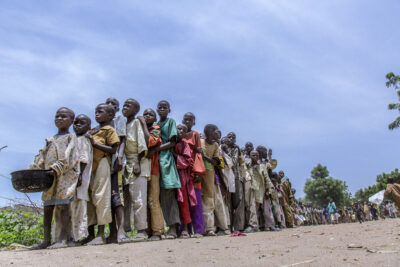For many early-career humanities and social science scholars, transforming a dissertation into a book is a process marked by great intellectual development and growth. The process not only involves additional research but also reconsiderations of narrative purpose, voice and audience. The added challenges of finding the right publisher, choosing a title, and securing image rights lengthen the process further. We asked three Dissertation Proposal Development Fellowship (DPDF) alumni who have recently published books drawing from their dissertation research to describe their modus operandi in completing their respective manuscripts.

Melissa Adler, a 2010 DPDF fellow in the Discrimination Studies research field and an assistant professor at the School of Information Science in the University of Kentucky, published Cruising the Library: Perversities in the Organization of Knowledge in March 2017. As a DPDF fellow, Adler’s research examined the role of the Library of Congress in the social construction of sexual deviance and its consequences for discrimination based on sexual orientation and practices. Cruising the Library expands on this theme—discussing the history of sexuality through the Library’s cataloging practices an offering a critique of how such practices have circumscribed expressions of gender, sexuality, ethnicity, and race in the US. She reports, “If I were to estimate how much of the book is directly drawn from the dissertation, I’d say it’s only around 10–15 percent. It’s entirely reworked and reorganized, and a great deal of new material and analysis was added in the years since the dissertation (2012).” Aside from restructuring delivery and analysis of her research to make the work appeal to a cross-disciplinary audience, Adler also filed a Freedom of Information Act request with the FBI, receiving approximately 200 pages of valuable materials for her project (see chapter 2, “The Delta Collection”). She’s already working on her next book, tentatively titled Organizing Knowledge to Save the World.

Aynne Kokas—an assistant professor of media studies at the University of Virginia—was a 2007 Visual Culture fellow who studied the changing relationship between Chinese cinema and Hollywood and analyzed the multinational origins of movies ultimately produced in Shanghai for her dissertation. Her first book, Hollywood Made in China, examines China’s new role in global media industries through sharp policy analysis, ethnographic research and interviews with key figures. Kokas reports that there was a marked shift from her dissertation, which was rooted in Asian cultural and media industry studies, to her book, which took on a more policy-centered focus. Aspiring to reach a wider audience, Kokas structured her book strategically: “I wanted people who were interested in US media and Sino-US relations to read the book, in addition to people who were interested in Chinese film, which was the core audience for my dissertation. I also wanted the book to be accessible to policymakers and industry professionals, so I tried to make the book as readable as possible for nonacademics, while still retaining its character as an academic book.”

Annie Hardison-Moody, who currently works as an assistant professor in agricultural and human sciences at North Carolina State University, was a 2010 fellow in the After Secularization: New Approaches to Religion and Modernity research field. Hardison-Moody’s research, of particular interest to those who are involved with gender-based violence work, illuminates the nuanced ways in which religious practices and human rights practices intersect. In writing her book, When Religion Matters: Practicing Healing in the Aftermath of the Liberian Civil War, Hardison-Moody was challenged with the task of finding her authorial voice as a young scholar and bringing it to the forefront instead of masking it with discussions of other scholars’ theories and analyses. “I expanded significantly on themes that were in the dissertation, like migration, memory, leadership, and mothering, but gave them their own chapters, infused with more updated readings I had done since the dissertation, to craft a narrative framed in my own voice about the role everyday religious practices played in women’s healing processes,” she reported.
Advice from the authors
- Write every day. Although the book topics by each author are vastly different, the authors have one common piece of advice: abide by a daily regimen of writing or editing for one to two hours each day. Adler identified her habits as a “morning producer” as critical to her writing process.
- Be confident. Kokas reminds other scholars interested in book publication to “have confidence in your abilities. Some people know they want to become authors. I was never certain that I could, but I knew that I felt excited about other people knowing about my topic. On tough days, it helped to think of all of the people who had helped me along the way to whom I wanted to give back.”
- Lean on your support system. Book writing doesn’t have to be a solitary process. Hardison-Moody advises writers to establish a motivational support system of colleagues and friends that will help set and meet deadlines and read and critique drafts. During the writing process she worked with a writing group made up of colleagues she met in graduate school. “We read each other’s work, but perhaps more importantly, provide each other with regular check-ins, messages of encouragement, and share practical strategies about how to fit writing into our busy lives. When we are working on big projects, we’ll even do virtual writing boot camps with each other, checking in by text or phone each day about what and how much we’ve written.”
- Keep extensive records during the research phase. Kokas recommends finding “a good reference manager that can reformat your bibliography as necessary. Particularly for people working outside of English language contexts, it is really important to take down as much information about sources as possible during the research phase, because it can be difficult to go back and find information years later. Similarly, if you do interviews, stay in touch with your interview candidates by social media, if possible. I was able to do several follow-up interviews with people I had interviewed earlier just before I turned in my final manuscript. It was fun to do the interviews, but it also added to the book to get additional updated information right before publication.”
- Take lots of photos. Kokas wishes she had taken more photos during her research. “We are in such a visual society, it is important to have images to go along with your text. Even if the images don’t make their way into the book, they can be used to promote it once it is out.”
- Keep the book in mind when writing your dissertation. Think about what your book will look like while you write your dissertation. Kokas says, “When I finished my dissertation, I was shocked to think that it would need to eventually become a book. I would have loved to have a game plan ready to go as soon as I finished my dissertation. When you are writing and revising, identify background information that is in the dissertation that a general academic reader doesn’t necessarily need. Also, try to identify the core of the idea of the book that you will expand upon.”
If you are an SSRC fellowship or grant recipient and would like to keep us updated on some of your upcoming projects and publications, please contact the Research Matters editors at researchmatters@ssrc.org. We would love to hear from you!













